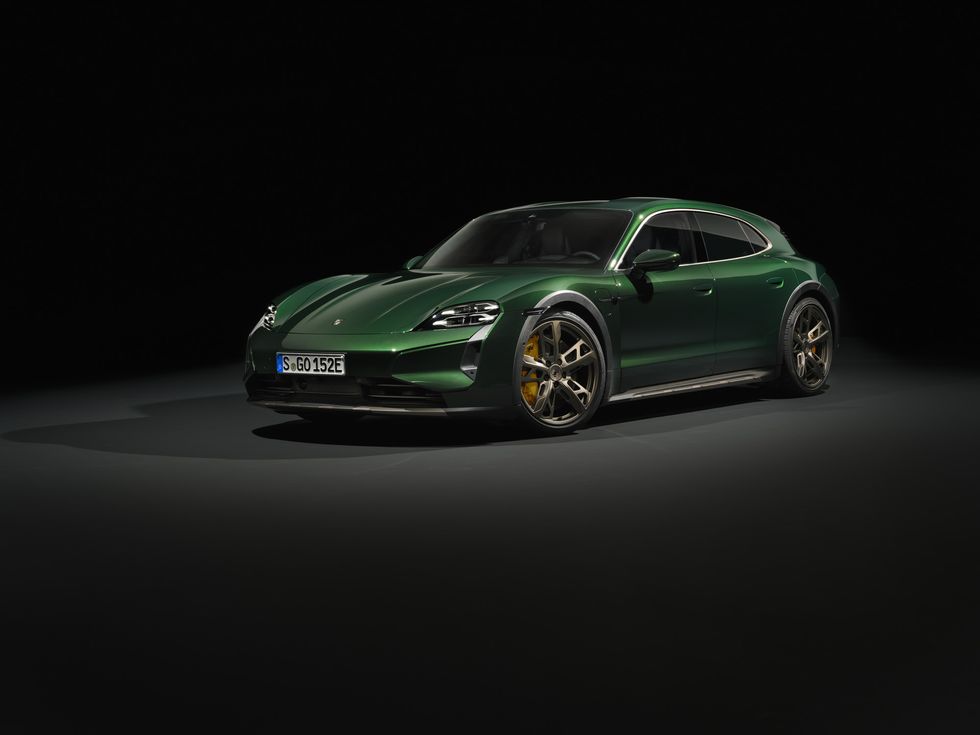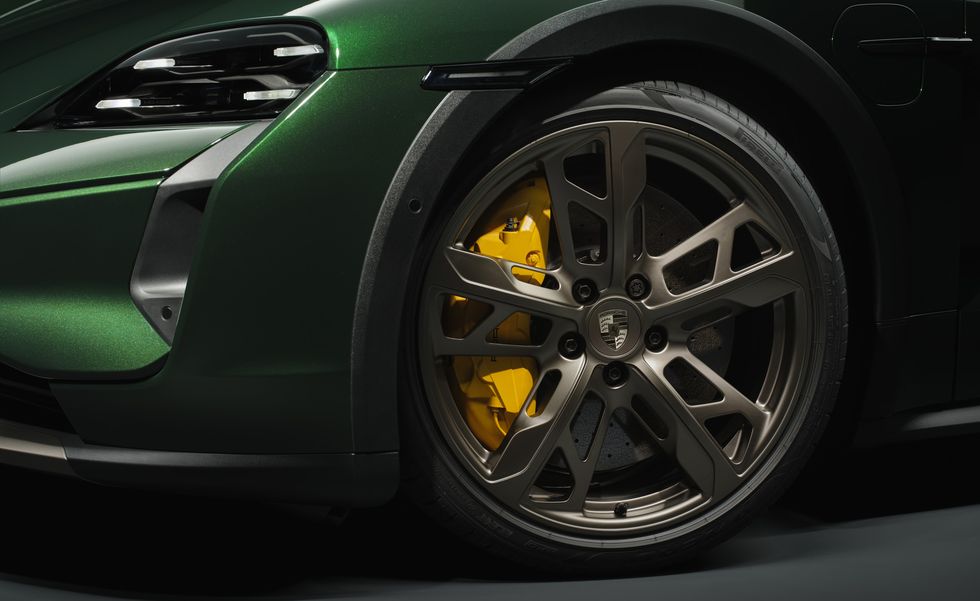We’ve been admirers of the Porsche Taycan since its debut in 2019, yet we’ve remained discerning about its shortcomings. Among these, its relatively limited range compared to other luxury electric vehicles has been a prominent issue.
However, the forthcoming 2025 version promises substantial enhancements in both range and performance, alongside customary design and technological refinements. Recently, we had the opportunity to test the new powertrain in a pre-production Taycan in California, and we’re excited to share our findings.
Visually, changes are subtle. The updated Taycan features new LED headlights and revised front fenders. Additionally, higher-end models will now sport an illuminated red “PORSCHE” legend integrated into the full-width light bar at the rear, a feature optionally available for lower-tier models.
The Turbo S variant will also see the addition of faux vents in the rear bumper, aimed at improving aerodynamic performance rather than serving any cooling function.

All Taycan models will receive upgraded batteries. The standard pack will now offer an 83.6-kWh usable capacity, while the optional Performance battery pack, standard on Turbo models and available on the base and 4S Taycan, increases usable capacity to 97.0 kWh.
Despite the larger capacity, the new Performance battery is lighter than its predecessor by 19 pounds, contributing to an overall claimed weight reduction of 33 pounds for the Turbo S.
Charging speeds have been significantly enhanced, with the peak now reaching 320 kW when connected to an 800-volt DC fast-charger. Improvements in fast-charging efficiency allow for faster charging even at lower battery temperatures. A standard 150-kW DC/DC converter further augments charging speeds on 400-volt networks.
The efficiency gains from the updated powertrain and larger battery packs translate to improved range figures.
Although awaiting EPA ratings, European WLTP figures suggest substantial increases in range, with the rear-wheel-drive Taycan claiming a 108-mile improvement to 421 miles and the Turbo S model reaching 391 miles, up from 290 miles. Our testing with a rear-drive prototype indicated an estimated real-world range of around 320 miles in a 75 mph range test.
Another significant update is the introduction of a lighter and more powerful rear motor featuring a two-speed transmission for improved efficiency at higher speeds.
Despite retaining the same peak power output of 402 hp for the rear-wheel-drive variant, full power is now accessible without the need for launch control, resulting in a quicker 0-60 mph time of 4.5 seconds.
The Turbo S model receives a power boost, with a base output of 764 hp across two motors, complemented by a push-to-pass function unlocking an additional 93 hp for short bursts. Launch control further elevates power output to 938 hp and 808 lb-ft of torque, marking a significant improvement over the outgoing model’s performance.
In addition to the base and Turbo S models, the Taycan 4S and Taycan Turbo will continue to be offered, with detailed specifications forthcoming. Both sedan and Cross Turismo body styles will remain available in the U.S., with the latter exclusively offered in all-wheel drive configuration.
Anticipated additions to the lineup include the Taycan GTS and the reintroduction of the Sport Turismo wagon body style without cladding.
Other enhancements include standard air suspension across all models, along with adaptive dampers. An optional anti-roll system is available, while the previous 48-volt electrical system has been replaced by a new electro-hydraulic setup named Active Ride, offering improved stability and handling characteristics.
Interior updates are modest, with the optional passenger-side screen now featuring a privacy filter, enabling video playback while the vehicle is in motion. Digital instruments have been redesigned to display the maximum charging speed the vehicle can support based on current battery conditions.
The adoption of next-generation Apple CarPlay+ allows for integrated climate control functions, while Porsche’s navigation system facilitates route planning around charging stations and targeted battery levels.
Price adjustments accompany the updates, with the entry-level Taycan starting at $101,395, the Taycan 4S at $120,495, the Taycan Turbo at $175,595, and the Taycan Turbo S at $210,995. Cross Turismo variants will incur a $2700 premium, with the base model starting at $113,095. Deliveries are slated to commence in the summer.

